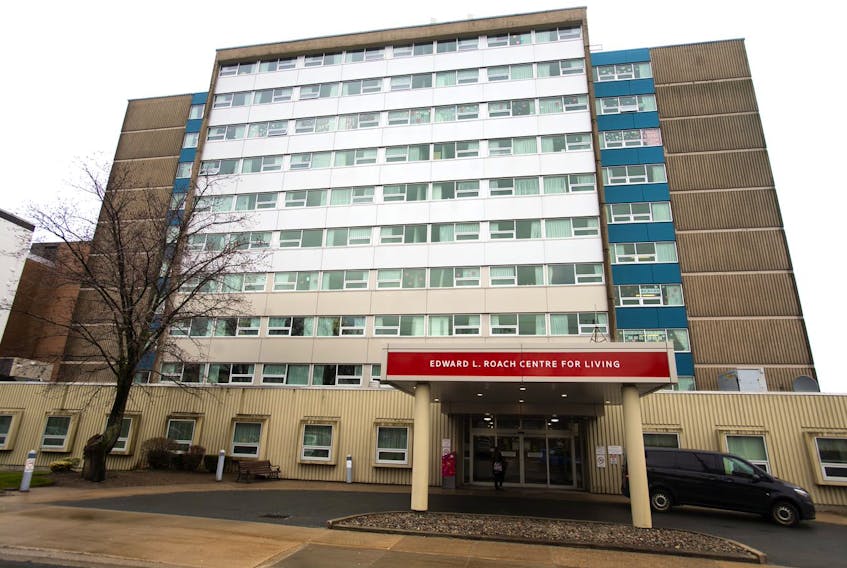Nova Scotia’s initial encounter with COVID-19 will be remembered for the tragedy at Northwood Manor.
The cold, grim numbers churned out day after terrible day tell the story. As of Tuesday, there were 41 COVID-19-related deaths in Nova Scotia, and 35 of those were residents of Northwood, the province’s largest long-term care (LTC) facility, located in central Halifax.
Northwood reported its first positive tests for the coronavirus SARS-CoV-2 on April 5. By April 19, the province and Northwood had activated an emergency plan to try to control the outbreak, which had grown to 111 cases among residents with another 40 staff members infected. Five residents had died.
As part of the plan, staff from the Halifax Infirmary’s COVID-19 unit were redeployed to Northwood and two days later the Nova Scotia Government Employees Union reported that its members compared their arrival at the long-term care facility to “walking into a war zone.”
“NSGEU nurses redeployed to Northwood Manor are reporting extremely serious concerns about the health and safety of vulnerable seniors due to poor infection control and limited safety protocols at the facility,” the union said in a news release.
Northwood’s administration and the province’s chief medical officer of health, Robert Strang, seemed mystified by the union’s criticism. They said Northwood’s infection control measures were appropriate to the facility and specifically disputed union claims that staff at Northwood lacked access to personal protective equipment (PPE).
But the terrible toll at Northwood continued to mount. By the end of April, the facility had 216 cases of COVID-19 among residents and another 80 among its staff. Twenty-two residents had died.
Northwood has capacity for 485 long-term-care residents.
It is full most of the time, and those residents are mostly old and frail. There are typically 10 to 12 deaths per month at Northwood. Five days into May, and already this month there have been 13 COVID-19-related deaths at the home.
The good news, if there is any, is that the rate of infection at Northwood appears to be levelling off. In the past week the facility reported 21 new COVID-19 cases among residents, 16 additional infections among staff and 14 deaths. The week before, Northwood had 88 new cases among residents, 31 new cases among staff and 16 deaths. The sad reality is that, even if the rate of infection slows, the death toll could continue at or near its current level for some weeks yet.
Northwood is unique in Nova Scotia, but not nationally.
Nursing homes in Ontario, Quebec and British Columbia have also been hit hard by COVID-19. In Quebec, 79 per cent of the deaths from the illness have been residents in long-term care. Nova Scotia’s overall numbers — of both infections and deaths — are much lower than Quebec’s, but 95 per cent of this province’s deaths have been residents of LTC. Four deaths occurred among residents at LTC facilities other than Northwood.
As the initial wave of COVID-19 appears on the wane across Canada, attention is turning to “lessons learned” during the first and — we can only hope — worst outbreak.
The obvious lesson is that too many of our long-term care facilities — Canada’s nursing homes — weren’t built for this. Many, like Northwood, are older with mostly shared rooms where it is difficult to isolate residents who are contagious.
Questions have also come up concerning Nova Scotia’s response to the outbreak in LTC.
Geriatrics expert Dr. Samir Sinha told The Herald’s Andrew Rankin that Nova Scotia was slow out of the gate in ensuring workers in LTC wore surgical masks, and in prohibiting nursing home workers from working at multiple facilities.
Whether those measures would have made much difference at Northwood is a question that will need to be answered later, when the crisis has passed.
Northwood may not be the best nursing home in Nova Scotia, but it is as good as most and better than many. It is bigger than the rest and older than a lot. It started equipping its staff with masks before the province mandated that measure.
As Josie Ryan, the home’s director of LTC pointed out recently, Northwood has an enviable record containing infectious diseases, from seasonal flu to gastrointestinal bugs, but “this is a different virus.”
COVID-19 comes packaged in a virus that gets passed around among folks who don’t know they have it. When it lands, it packs a wallop that is especially hard on older, frail people with other health problems. That, of course, is also the typical profile of nursing home residents.
On April 2, before it had a positive case, Northwood sent a letter to the families of all its residents, warning them that: “Despite all our precautions, an outbreak may still happen.”
It did, and before it faces a next wave of COVID-19, or some new pathogen, Northwood, like many of Canada’s nursing homes, needs to be adapted to better protect residents against the deadly threat.









